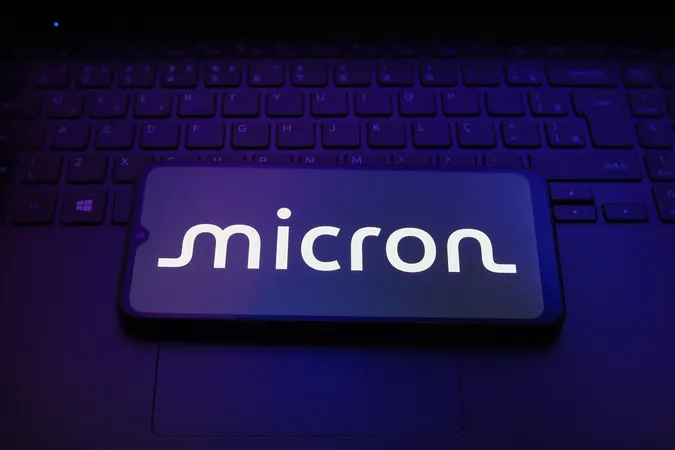
Breakthrough Study: TNF Inhibitors Slash Risk of Complications in Children with Crohn’s Disease!
2024-12-23
Author: Li
Groundbreaking Study and Findings
In a groundbreaking study, researchers from Michigan Medicine have discovered that the early administration of anti-tumor necrosis factor (anti-TNF) medications significantly reduces the risk of perianal fistulas in children diagnosed with Crohn's disease. This finding emphasizes the urgent need for physicians to consider these drugs as the first-line treatment, potentially sparing young patients from severe complications.
Significance of the Research
The research, which appears in the prestigious journal *Gut*, solidifies earlier work by the same team, which implied that early treatment could lower the incidence of painful and debilitating perianal fistulas—a condition affecting about 1 in 3 children with Crohn’s. The new analysis stands out because it provides clear evidence of causation, illustrating that it’s specifically anti-TNF therapies that deliver this benefit.
Expert Insights
“Previously, we could only suggest a correlation, but this study gives us a definitive timeframe,” said Dr. Jeremy Adler, M.D., M.Sc., the study’s lead author and clinical professor of pediatric gastroenterology at the University of Michigan. “By isolating anti-TNF medications from others, we demonstrate their critical role in preventing these complications.”
Prevalence and Impact of Crohn's Disease
Currently, around 40,000 children in the United States suffer from Crohn's disease, and perianal fistulas can lead to extreme discomfort, drainage issues, and sometimes necessitate an ostomy—a surgical procedure where stool is diverted into a collection pouch. The severe nature of these issues makes prevention crucial for both healthcare providers and families.
Current Treatment Landscape
Standard treatments for fistulas often involve high doses of anti-TNF medications, but success rates are not guaranteed, with studies indicating that roughly 70% of affected patients may require surgical interventions. The new study reveals that initiating anti-TNF therapy can reduce the likelihood of fistula development by an astonishing 82%, with an even higher reduction (94%) for children presenting with early warning signs such as skin tags and fissures.
Study Details and Implications
This data stems from the Pediatric RISK Stratification study, a comprehensive analysis of 913 children diagnosed with Crohn’s disease in the U.S. and Canada. Treatments like infliximab and adalimumab belong to this category of drugs, which, despite being more expensive, offer fewer side effects compared to traditional immunomodulators like azathioprine and methotrexate.
Call to Action for Healthcare
Dr. Adler emphasizes that both health professionals and families must take notice of these findings. “Choosing anti-TNF medications as first-line therapy can potentially save significant costs related to the treatment of complications, not to mention the immense suffering avoided for the patients,” he explained.
Conclusion and Future Considerations
As the gateway to better health outcomes for children suffering from Crohn’s disease, this study serves as a clarion call for families, healthcare providers, and insurance companies alike. By prioritizing early intervention with anti-TNF drugs, we could transform the prognosis for many young patients, allowing them to enjoy a better quality of life free from the burdens of painful complications.
In conclusion, the research not only paints a hopeful picture for those affected by Crohn's disease but also provides a clear directive for treatment protocols moving forward. The question remains: will healthcare systems and insurers recognize the long-term financial and health benefits of prioritizing this effective treatment?



 Brasil (PT)
Brasil (PT)
 Canada (EN)
Canada (EN)
 Chile (ES)
Chile (ES)
 España (ES)
España (ES)
 France (FR)
France (FR)
 Hong Kong (EN)
Hong Kong (EN)
 Italia (IT)
Italia (IT)
 日本 (JA)
日本 (JA)
 Magyarország (HU)
Magyarország (HU)
 Norge (NO)
Norge (NO)
 Polska (PL)
Polska (PL)
 Schweiz (DE)
Schweiz (DE)
 Singapore (EN)
Singapore (EN)
 Sverige (SV)
Sverige (SV)
 Suomi (FI)
Suomi (FI)
 Türkiye (TR)
Türkiye (TR)